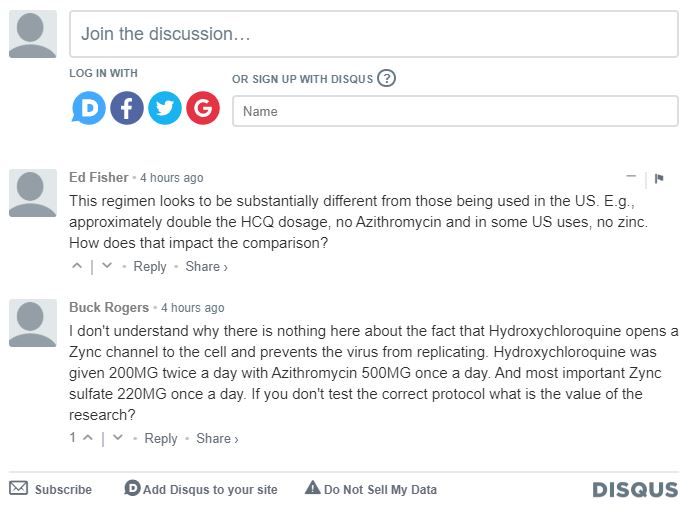Malaria drug hydroxychloroquine does NOT help clear coronavirus, a small study of 150 hospitalized patients by doctors in China showed

Over the past few weeks, we’ve shared a lot of positive stories about how malaria drug hydroxychloroquine has saved lives of many people here in the United States. However, as part of our fair and balanced coverage of the drug, we think we owe it our readers to share the findings of others scientists who found during the course of their study that the drug did NOT helped COVID-19 patients.
Last week, we wrote a story after the nation’s leading cardiology groups cautioned the public about the use of hydroxychloroquine and azithromycin for COVID-19 patients with cardiovascular disease. Now a new study of 150 hospitalized patients by doctors at 16 centers in China found that the game-changing pill didn’t help patients clear the virus better than standard care and was much more likely to cause side effects. The researchers also found that the drug did help alleviate some clinical symptoms of Covid-19, however, and the patients who took it showed a greater drop in C-reactive protein, a measure of inflammation.
In a new research, which was published at medRxiv but hasn’t been peer-reviewed, researchers found that there were more side effects in the group of 75 people who took hydroxychloroquine, but they were mostly mild, the most common being diarrhea. The study, which was led by Wei Tang of Ruijin Hospital in Shanghai, found that the medicine’s anti-inflammatory effects probably helped alleviate patients’ symptoms.
“When testing new treatments, we are looking for signals that show that they might be effective before proceeding to larger studies,” said Allen Cheng, an infectious diseases physician and a professor of epidemiology at Melbourne’s Monash University. “This study doesn’t show any signal, so it is probably unlikely that it will be of clinical benefit.”
However, as you dive deep into the study, you will find that the protocol did not include other critical drugs. For example, on April 7, we wrote a story titled,”Hydroxychloroquine only works when used in combination with Zinc, Dr. Anthony Cardillo says on ABC News.” In other words, hydroxychloroquine does not work. It only works when when used in combination with Zinc. In one of his videos, Dr. Vladimir Zelenko, a board-certified family practitioner in New York, who said he treated 699 patients successfully using hydroxychloroquine even explained that, “It is Zinc that actually helps slows or decelerates the viral replication within the cell. But on its own, Zinc cannot penetrate the cell without the help of hydroxychloroquine. So, the work of hydroxychloroquine is to help zinc penetrate the cell.”
Before critics of hyroxychloroquine start using the result of this study as an argument against the drug, some scientists have come out to say the study missed the critical drugs and doses required to effectively kill the COVID-19 virus. For example, one user posted the following on medRxiv saying: “This regimen looks to be substantially different from those being used in the US. E.g., approximately double the HCQ dosage, no Azithromycin and in some US uses, no zinc. How does that impact the comparison?”
Another user said this: “I don’t understand why there is nothing here about the fact that Hydroxychloroquine opens a Zync channel to the cell and prevents the virus from replicating. Hydroxychloroquine was given 200MG twice a day with Azithromycin 500MG once a day. And most important Zync sulfate 220MG once a day. If you don’t test the correct protocol what is the value of the research?”





